Navigating the world of the ketogenic diet can often be intricate, especially when it comes to incorporating fruits into this high-fat, low-carb eating plan. Fruits, though packed with essential vitamins and minerals, can also be rich in carbohydrates. The key is distinguishing which fruits align with the stringent carb restrictions of the keto diet. While many believe all fruits are off-limits, there’s a variety that can be enjoyed in moderation. This post aims to dispel myths and provide clarity on the types of fruits that can be harmoniously integrated into the ketogenic lifestyle, ensuring diet adherence while still savoring nature’s sweetness.
Raspberries
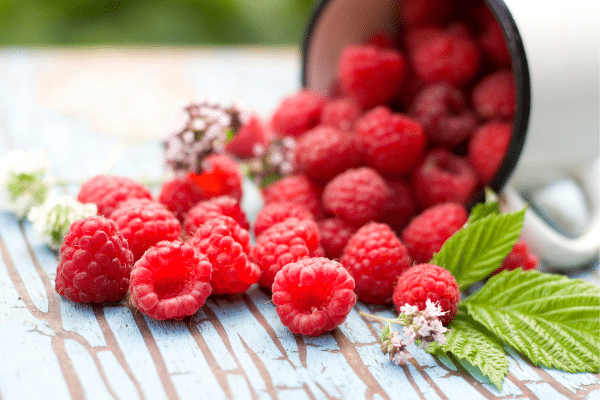
Raspberries are a popular choice for many on the keto diet due to their low net carb content. A half-cup serving contains only about 3 grams of net carbs, courtesy of their high fiber content. These juicy berries are not only low in carbohydrates but also abundant in vitamins, antioxidants, and other essential nutrients. They offer a sweet but tart flavor, making them a versatile ingredient in various keto-friendly recipes.
Including raspberries in a keto diet can be as simple as enjoying them fresh, adding them to salads, or incorporating them into desserts. Portion control is crucial to ensure that the carb count remains within the daily limit, allowing individuals to enjoy the delectable taste without compromising the state of ketosis. Raspberries can also be frozen for a prolonged shelf life, ensuring that this keto-friendly fruit is always on hand for a quick snack or recipe addition.
Bananas
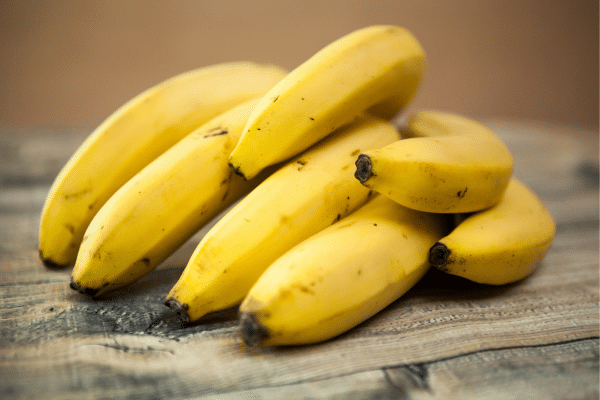
Bananas are generally higher in carbohydrates, with a medium banana containing approximately 24 grams of total carbs. While this carb content may seem steep for those on a keto diet, bananas can still be incorporated when eaten in moderation. The key lies in understanding the ripeness levels, as less ripe bananas contain fewer sugars and a type of starch that resists digestion, resulting in a slightly lower carb impact.
There are creative ways to incorporate bananas into a keto diet without going overboard on carbs. For example, using a small portion of banana to add flavor to a keto-friendly smoothie or dessert can be a workable option. Also, banana extracts or flavorings can offer the beloved banana taste to various dishes, without adding significant amounts of carbohydrates, allowing keto dieters to savor the flavor while maintaining their carb restrictions.
Oranges
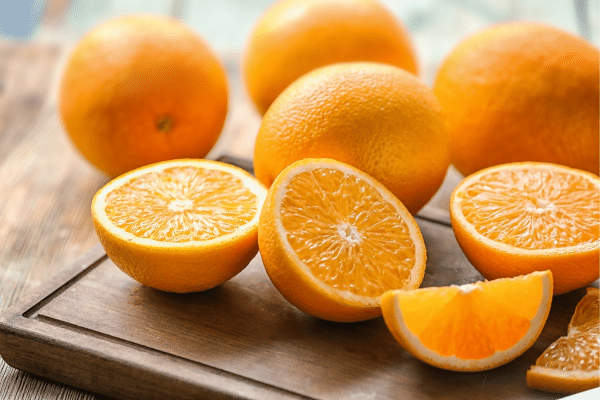
Oranges, while delicious and nutritious, tend to be higher in carbohydrates due to their natural sugar content. A typical orange has about 15 grams of carbohydrates, which could potentially impact the state of ketosis if not accounted for within the daily carb limit. However, this doesn’t mean they should be entirely off-limits for those following a keto lifestyle. They are rich in vitamin C and other antioxidants, offering a range of health benefits including boosting the immune system and promoting skin health.
Enjoying oranges on a keto diet requires careful planning and portion control. Consuming them in small amounts or utilizing the zest can add flavor to dishes without bringing in excessive carbs. Alternatively, incorporating orange extract or essence in recipes can infuse that desired citrusy flavor. Being mindful of portions and integrating oranges creatively can make them a part of a balanced, keto-friendly diet.
Avocados
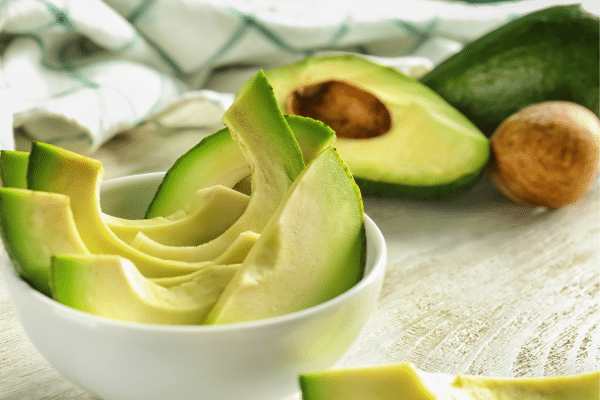
Avocados are often hailed as a keto superstar, owing to their rich content of monounsaturated fats and low carbohydrate content. Each serving brings not only creaminess and flavor to a variety of dishes but also offers essential vitamins, minerals, and fiber. The high fiber content significantly lowers the net carbs, making avocados a staple in many keto kitchens. They’re instrumental in promoting satiety, supporting heart health, and providing a host of nutrients that may be lacking in a strict keto diet.
Including avocados into the daily diet can be achieved in numerous delicious ways. They can be enjoyed sliced in salads, mashed as a topping, or even blended into smoothies for added creaminess without extra carbs. With their versatility and myriad of health benefits, avocados are often considered a must-have for individuals looking to maintain a balanced and enjoyable keto diet while reaping a wealth of nutritional benefits.
Mangos
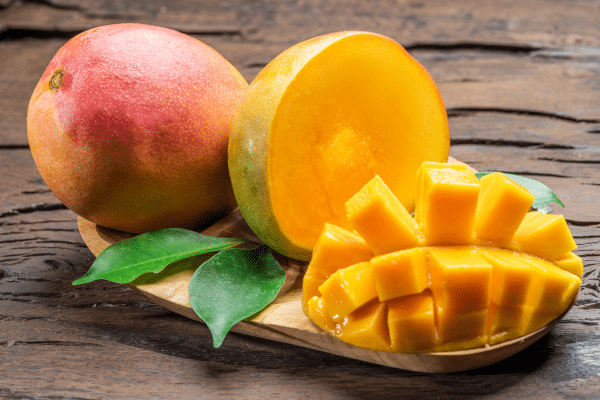
Mangos, with their tropical allure, are undoubtedly a favored fruit by many. However, their higher sugar content can be a concern for those adhering to a keto regimen. A one-cup serving of sliced, raw mango has around 25 grams of carbohydrates. Although this might seem prohibitive, it’s possible to enjoy mangos in moderation by paying careful attention to portion sizes and daily carb intake.
For mango aficionados on the keto diet, there are still ways to enjoy the distinct, sweet flavor without compromising the carb limit. One option is to incorporate small amounts of mango into salads or salsas as a garnish. Another strategy involves using mango extracts or flavorings in recipes to impart that recognizable taste, offering a way to savor the mango essence without significantly impacting the carbohydrate count.
Watermelon
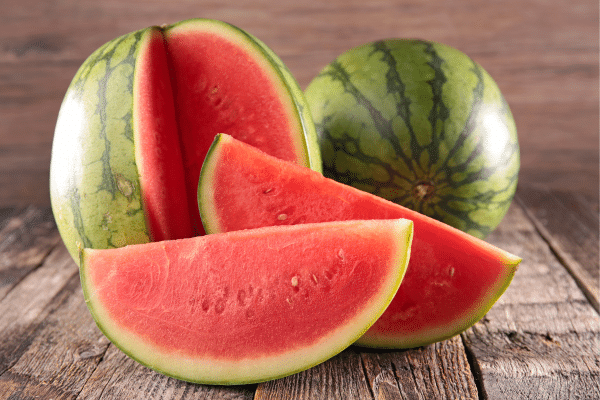
Watermelon, a quintessential summer fruit, is known for its refreshing and hydrating properties. It is composed of over 90% water and provides a juicy, crisp texture and sweet flavor. However, given its natural sugar content, those on the keto diet might be wary. A one-cup serving of watermelon contains approximately 11 grams of net carbs, making it a choice that requires careful consideration and moderation for individuals adhering to a strict carb limit.
The key to integrating watermelon into a keto diet is being mindful of portion sizes. Enjoying a small serving as an occasional treat can fit into the keto lifestyle without causing a significant spike in carbohydrate intake. Additionally, pairing it with foods high in healthy fats or protein can help to moderate the glycemic response, allowing for a balanced and delightful consumption experience.
Apples
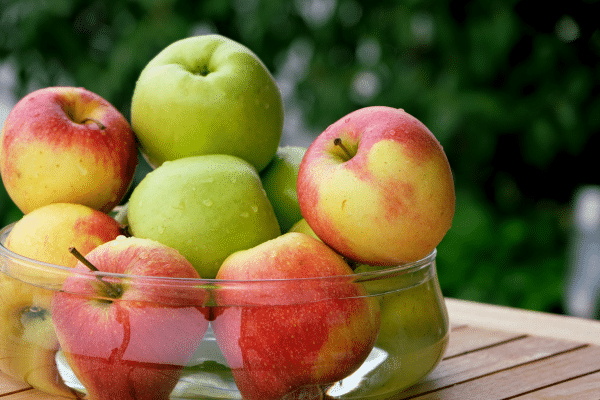
Apples, while renowned for their health benefits, are another fruit that must be consumed with caution on a keto diet due to their carbohydrate content. A medium-sized apple can contain approximately 25 grams of carbs, a significant portion of the daily carb allotment on a keto diet. However, they are also a source of dietary fiber, vitamins, and antioxidants, which can contribute to overall health and wellness.
To enjoy apples while maintaining a state of ketosis, focusing on portion control is crucial. Smaller servings or using apples as a minor ingredient in keto recipes can allow for their inclusion. Extracts and flavorings are also an excellent alternative for imparting the apple flavor to dishes without the associated carbs. This approach ensures that individuals can enjoy the essence of apples while adhering to their keto dietary restrictions.
The Bottom Line
Navigating fruit consumption on the keto diet involves a balance of indulgence and restraint. Fruits like raspberries and avocados fit seamlessly into this low-carb lifestyle, while others like bananas, oranges, mangos, watermelons, and apples require caution and moderation. The key lies in informed choices, focusing on net carbs and integrating fruits in ways that complement the diet’s restrictions. Through creative inclusion and portion control, it’s indeed possible to enjoy a range of fruits, making the keto journey not just manageable but also enjoyable and nutritionally balanced.


